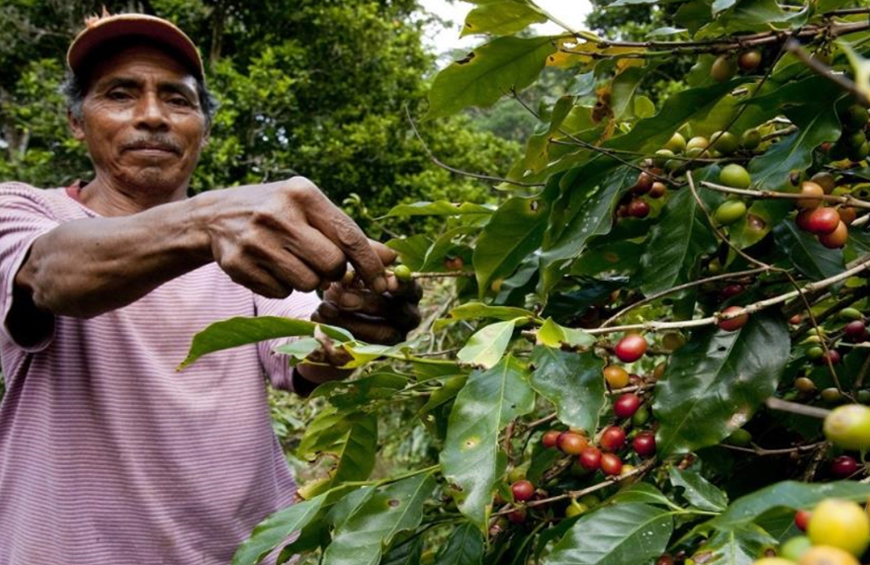- Your Cart is Empty
- Deem Solar
- Arabic Coffee
- 198 Views
- 0 Comment
Nothing takes me home like the sight of my father standing over the kitchen stove, making a pot of Arabic coffee. He stands over the stove, heating water in a small metal pot, waiting for the right moment to spoon in the mounding spoonfuls of coffee. Then he stirs the boiling coffee down, and lifts the pot, stirring again, then returns to the pot to the flame. It's a little dance, to boil the coffee without overflowing the pot. The rich smell of coffee fills the house, scented lightly with the sweet aroma of cardamom. He pours the little cups, as small as a child's play teacup, and carries one to my mother. They sit and sip in the afternoon sun, reaching for a bowl of chocolates.This is the daily afternoon ritual in my family home, and it is a ritual repeated all over the Middle East.
Qahweh Arabiyya, The Original Cup o' Joe
It is no wonder that coffee holds such a central place in our culture, as coffee originated in the Middle East, starting in Yemen and working its way to Egypt, then the Ottoman Empire, then through the rest of the Levant. In fact, the English word coffee comes from the Arabic word for coffee, qahweh. In our local dialect, we drop the first consonant and call this 'ahweh.
The Arab nomadic Bedouin tribes, many of whom you can still find today (nestled in tents and makeshift shacks, driving old trucks and herding sheep) have preserved and still practice many of the old ways. As part of a ceremonial welcome for honored guests, Bedouin men and women roast the coffee beans on a tray over a fire, and then crush the coffee beans by rhythmically beating them with a mortar and pestle. They brew their coffee much in the way my father does today, and pour it out for their honored guests.
Because of this, perhaps, serving coffee has deep cultural meaning, which goes far beyond the pleasure of a good roast or even the company of good friends. Preparing and serving coffee is a ceremonial act of extending hospitality and kindness, which both honors the guest and brings honor to the host. Before I had really acquired the taste, my mother instructed me to always simply drink a little politely, whenever offered. It is very rude to decline, she said.
Today, coffee is still served at every important event, from births, to engagements, to weddings and funerals. Coffee plays a role in traditional courtship, as it is customary for the girl to serve coffee to the family of her beloved, if she is willing to accept his proposal. Every social call and every meal is concluded with coffee and a tray of sweets or fruit.
Usually, the more bitter the occasion, the more bitter the coffee. At funerals, family and friends prepare the coffee the night before, and it is served very dark and very bitter. A swallow or two is all that is taken by guests. It is customary to close the time of coffee drinking with the blessing daymi, which means, always, as in, may we always drink coffee like this. At a funeral, though, these words are soberly omitted.
And while today you can probably find a Starbucks-style coffee shop in almost every Middle Eastern city, the coffee houses of our world are far more austere, fitted with plastic chairs and tables, and lit with fluorescent lights. You will hardly see a woman in there, but instead, clusters of men, often smoking tobacco water pipes or cigarettes, chatting on cell phones or with each other, sometimes playing a quick game of backgammon and talking politics. In between the tables, little boys weave with trays of cups of coffee, occasionally running out of the shop to deliver a tray to a nearby shop keeper.
The Makings of Arabic Coffee
Arabic coffee, or qahweh arabiyya, is defined by its method of preparation and its flavoring, rather than the type or roast of bean. Arabic coffee is an unfiltered boiled coffee, served black, and if sugar is added, it is added only during preparation. It is boiled in a small pot, called a briq, and then poured into small delicate cups without handles, called fenjaan. Sometimes, the coffee is transferred to a larger and more beautiful pouring jug to serve in front of guests, called a dallah. More often, though, the host prepares the coffee in the kitchen and brings out a tray of the small glasses of coffee. Coffee is always served to oldest to youngest, with men first.
Unlike its Turkish counterparts, traditional Arabic coffee, with its roots in Bedouin tradition, is usually unsweetened (qahweh saada), but now many drink it lightly sweetened. Still, this is never a syrupy sweet coffee, but rather robust and bitter. To offset the bitter flavor, coffee is usually served with something sweet--the traditional accompaniment was dates - but now other sweets are often served alongside the tray of coffee cups.
Arabic coffee is traditionally flavored with green cardamom, the expensive and exotic aromatic spice native to India, which passed through the Levant with rise of the Silk Road and the spice trade. The coffee beans and cardamom pods are roasted separately and then combined and ground together finely before being brewed. My father, however, has a little secret for superior coffee. Instead of purchasing coffee with ground cardamom pods, he requests that the cardamom is shelled first, so that only ground cardamom seeds are in his coffee. I have to say, I much prefer this. Since Arabic coffee is unfiltered, most of the time the coffee is flecked with floating pieces of cardamom shell. My father's coffee, though, is thick and smooth and most delightfully shell-free. To make this coffee at home, you would need to shell your cardamom seeds first, before grinding them finely and mixing it with any espresso-grade roasted coffee bean.
 العربية
العربية
 Arabic
Arabic




Comments